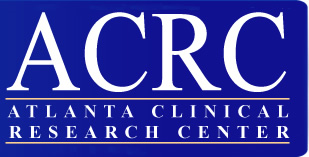


- Currently enrolling trials:
- Hypertension study
- Diabetes study
- Acute coronary syndrome study
- Acid reflux study
- Arthritis study
- Smoking cessation study
- Weight loss study
PATIENT EDUCATION
Diabetes
- Diabetes is a chronic condition associated with abnormally high levels of sugar (glucose) in the blood. Insulin produced by the pancreas lowers blood glucose. Absence or insufficient production of insulin causes diabetes. The two types of diabetes are referred to as type 1 (insulin dependent) and type 2 (non-insulin dependent). Symptoms of diabetes include increased urine output, thirst and hunger as well as fatigue. Diabetes is diagnosed by blood sugar (glucose) testing. The major complications of diabetes are both acute and chronic. Acutely: dangerously elevated blood sugar, abnormally low blood sugar due to diabetes medications may occur. Chronically: disease of the blood vessels (both small and large) which can damage the eye, kidneys, nerves, and heart may occur Diabetes treatment depends on the type and severity of the diabetes. Type 1 diabetes is treated with insulin, exercise, and a diabetic diet. Type 2 diabetes is first treated with weight reduction, a diabetic diet, and exercise. When these measures fail to control the elevated blood sugars, oral medications are used. If oral medications are still insufficient, insulin medications are considered.











